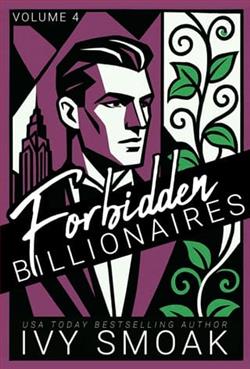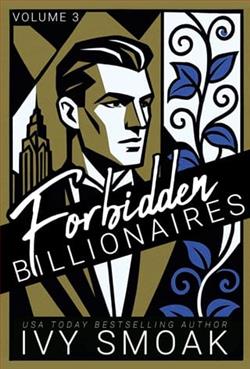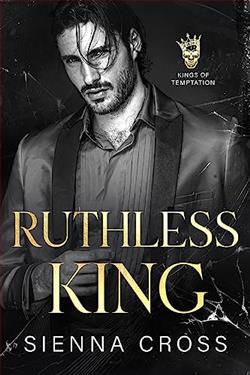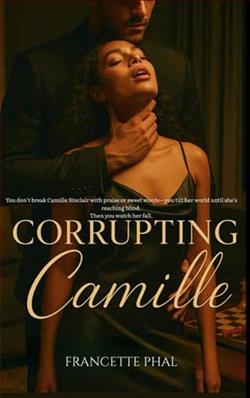Page 64 of The Six Murders of Daphne St Clair
His eyebrows shot up over his square, tinted glasses. “Loretta? It’s been a long time since I heard that name! I haven’t seen her in over seventy years! Why the heck are you interested in Loretta?” he asked, his whole demeanor changing. He gestured at the other lawn chair and Ruth sat down, holding her microphone out in front of her.
“I’ll explain everything. But first, I just wanted to confirm that you remember her?”
“Of course! She was my older sister. She took care of us kids, always the first to pick us up when we were crying or distract us when Dad was mad. But she left when I was seven,” Buzzy said.
“Do you know why she left?” Ruth asked, wondering if her connection to the preacher, or the fact that she’d stolen from him, had ever become public knowledge.
“No,” he said bluntly. “But I never wondered. My dad was a son of a bitch. Especially to the girls,” he said ominously. Ruth knew she’d have to get him to spell it out. Implications didn’t make for good podcast interviews. But it wasn’t her happiest moment as a journalist.
“What did he do to the girls?” she asked. He glared at her and for a moment she thought he was going to ask her to leave. But he clearly wanted to know about his sister and maybe he was even just pleased to be talking to someone new. If Ruth had learned anything in the last few months, it was that seniors’ centers tended to be the same, day in and day out, and most people struggled with a frustrated sense of boredom.
“He. . . abused them. But I don’t want to talk about that,” Buzzy said, swatting the air away. “There’s not a lot of secrets in a one-room cabin but that don’t mean I need to go dredging it all up.”
“What was it like after she left?” Ruth asked.
Buzzy frowned. “Well, us young kids cried a lot. And my mom got quieter and quieter, almost as if she was invisible. But my dad acted like nothing happened. One time he backhanded my brother Ray for talking about her. After that, we didn’t speak about Loretta anymore.”
He sighed and went quiet, as if saying all those words had tired him out. Ruth and Buzzy sat, squinting at the dry horizon for a few minutes, baking in the heat.
“That house could make you mean. It taught you not to care about anyone but yourself,” he said finally, breaking the silence. “So, you going to tell me why you’re asking about Loretta?”
“Loretta. . . changed her name. She goes by Daphne St Clair now,” Ruth began. She wondered if she would see a flicker of recognition but there was nothing. Maybe American news wasn’t shown much up here, or maybe Buzzy just stuck to the sports channel. “Daphne lives in Florida, and recently she confessed to multiple murders. She would marry men for their money and then poison them.” It was an oversimplification of Daphne’s life, but it was a lot of life to cover in one explanation.
Silence. Buzzy’s face remained frozen for a long time, until finally he raised his gnarled hands to his face and emitted a wet cough.
“That’s a shock,” he said. “You’d never expect it to be someone you know, even if you haven’t seen them for a long time.”
Ruth recognized that he was speaking in generalities as a kind of mental protection. They were discussing what it was like to have a murderer for a sister in the abstract, nothing to do with him. Ruth could understand, sometimes she used the same technique when she was talking to Daphne, so she could momentarily forget that Daphne was the reason her life was ruined, so that she could stand to be in the same room with her.
Buzzy whistled, his dry lips contorting into a pucker.
“I feel like I’m about to fall off my chair,” he said. “Well at least she didn’t keep her name.”
Ruth stayed silent, waiting for him to react further.
But he just kept shaking his head, looking shell-shocked.
“And the police caught her?” Buzzy asked finally.
“No, she just confessed out of the blue after they treated her most recent murder as a natural death.”
“Why would she do that?” he asked. “Out of guilt?”
Ruth remembered Daphne’s smug smile as she recounted Warren’s death.
“Definitely not guilt. It’s a mystery, really,” Ruth said with a shrug.
“Have you told people in town about her?” Buzzy asked slowly.
“No,” Ruth said. “I only just got here. And the waitress didn’t ask why.”
“Good, keep it to yourself. When my dad died, and my older brother, who was a bit wild and moved out west, people stopped talking about those no-good Cowells. I built a nice life here, raised a good family. I don’t want the town talking about us again.”
“But. . . people will find out,” Ruth said. “It’s a huge news story, and this podcast is getting bigger by the day.”
Buzzy smiled and said confidently, “You’d be surprised how much gets overlooked here. Unless it’s baseball or hockey, people don’t care.”
“Okay,” Ruth said, knowing that Buzzy was stuck in the past.















